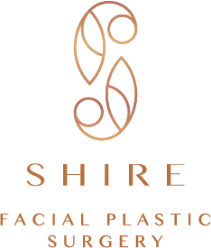1. What is Rhinoplasty?
Nasal enhancement can be performed on any part of the nose, to increase or reduce its size, to modify the size and shape of the nostrils, tip or bridge of the nose or to alter the slope or angle of the nose. Rhinoplasty may also be used to correct an injury or birth defect, and to improve breathing.
2. Is Rhinoplasty surgery painful?
This depends on the surgeon and the techniques they use. In general Rhinoplasty is not painful. However there is some discomfort involved. This is from the swelling that develops and feels like pressure, similar to the pressure congestion of a bad cold, and usually only last 4-5 days.
3. What are the risks of Rhinoplasty?
The risk of rhinoplasty is similar to other surgeries. There is a risk of bleeding (nose bleeds), infections, breathing difficulties, and a poor or unsatisfactory result. Complications are rare, and can be minimized by selecting the right surgeon for your situation, and following the pre and post operation instructions and restrictions.
4. What is the recovery time for Rhinoplasty?
The cast usually is removed at one week. Most people are out-and-about at that time with limited physical activities, and usually back to work. Full physical (strenuous) activity however is limited for about a month.
5. How long after my surgery will I see the final results?
The results can be seen almost immediately, and the nose will look better when the cast is removed than it did before surgery. But the nose will be swollen! The swelling will last about one year. However 75% of the swelling will be gone within the first 4-6 weeks. That is the way the body heals. Bruising is not very common (about 1 in 10) and is usually gone by the time the cast is removed (I week). However these results depend on the surgeons' technique and level of expertise.
6. How long does it take for bruising and swelling to go away?
The swelling will last about one year. However 75% of the swelling will be gone within the first 4-6 weeks. That is the way the body heals. Bruising is not very common (about 1 in 10) and is usually gone by the time the cast is removed (I week). However these results depend on the surgeons' technique and level of expertise.
7. How do I minimize bruising from Rhinoplasty?
Bruising can be limited by avoiding taking anything that inhibits the clotting of the blood, such as aspirin, ibuprofens, Vitamin E, and fish oil supplements. In addition nasal packing will increase the bruising, therefore I rarely ever pack the nose after surgery.
8. How can I get a natural looking Rhinoplasty?
You should always strive to have a natural appearing nose. Therefore it is critical that the patient does their homework and locate an expert in Rhinoplasty with experience. The days of quick excisional "nose-jobs" should be over but unfortunately there are still many doctors that use older reductive techniques. Ask questions look at their results, speak to former patients, and get second or even third opinions.
9. What type of anesthesia is used?
Usually rhinoplasties are performed under general or conscience sedation anesthesia. Personally most all of my rhinoplasties are done under conscience sedation.
10. How soon will I be able to exercise after my Rhinoplasty surgery?
Most patients can get back to exercise and physical activities in 4 weeks or so. But the most be careful not to be struck or hit in the nose for about 3 months.
11. I am of ethnic background, is there a rhinoplasty procedure that caters to ethnic noses?
Every nose is different and needs to be treated appropriately. There are techniques that work better with ethnic noses such as the "Open Structure Rhinoplasty" with cartilage grafting. But that determination should always be up to the surgeon. Therefore selecting the correct surgeon is critical.
12. What should I look for in a surgeon to perform my rhinoplasty procedure?
All surgeons are not the same, so do your homework. You need a doctor whom you have a rapport and can talk to. The surgeon must be an expert in rhinoplasy and have experience in rhinoplasty surgery. The doctor should be able (and willing) to explain the procedure and the process in a way you can understand. Look at the doctors' results (many of them not just a few) to see you like what is being done. Don't be affair the ask questions or to get second opinions.
Contact us today to schedule your consultation.


